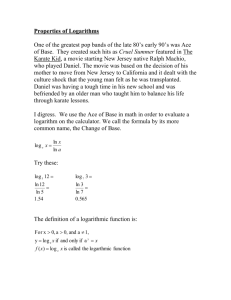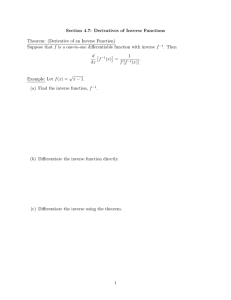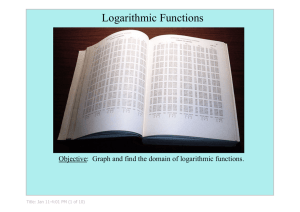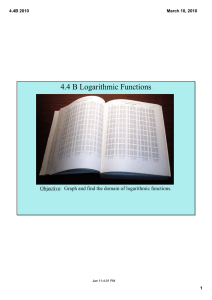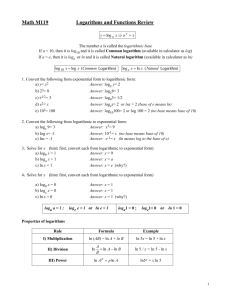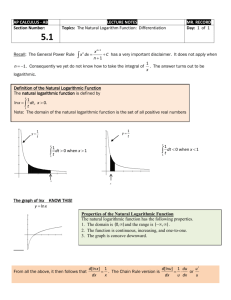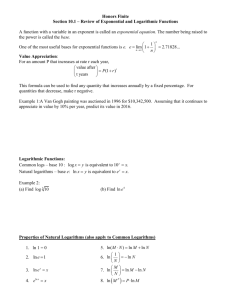Math 111 Week Number Eight Notes
advertisement
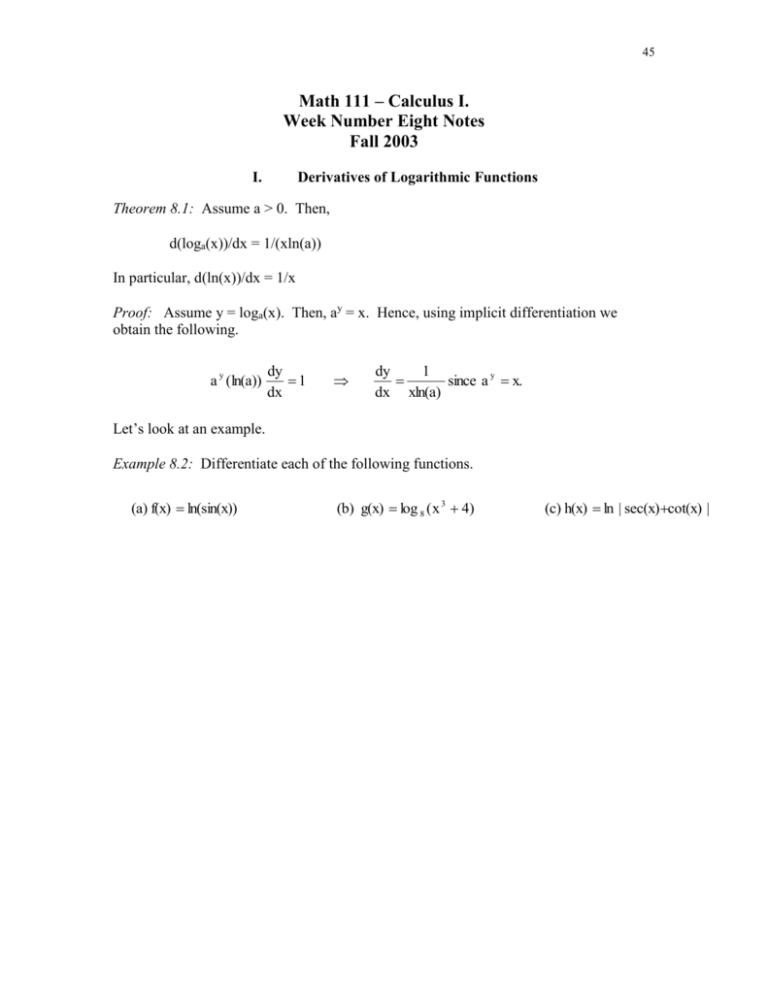
45 Math 111 – Calculus I. Week Number Eight Notes Fall 2003 I. Derivatives of Logarithmic Functions Theorem 8.1: Assume a > 0. Then, d(loga(x))/dx = 1/(xln(a)) In particular, d(ln(x))/dx = 1/x Proof: Assume y = loga(x). Then, ay = x. Hence, using implicit differentiation we obtain the following. a y (ln(a)) dy 1 dx dy 1 since a y x. dx xln(a) Let’s look at an example. Example 8.2: Differentiate each of the following functions. (a) f(x) ln(sin(x)) (b) g(x) log 8 ( x 3 4) (c) h(x) ln | sec(x) cot(x) | 46 II. Logarithmic Differentiation The technique is simple (in principle). Given a function y = f(x), we take logarithms of both sides of the equation, differentiate this new relation (using implicit differentiation), and then solve for dy/dx. Let’s look at the following example. Remember, logarithms can restrict the domain of the derivative. It is advisable to apply this technique only when the range of the function is positive. Example 8.3: Differentiate the following functions using logarithmic differentiation. (a) f(x) x x (b) g(x) x cos(x) (c) h(x) (2x 1) 5 ( x 4 3) 6 47 III. Sample Application Problems (section 3.3) Example 8.4: (problem 23, p. 217): Assume that the cost, in dollars, for a company to produce x pairs of a new line of jeans is given by the following equation. C(x) 2000 3x .01x 2 .0002x 3 (a) Find the marginal cost function. (b) Calculate the marginal cost when x = 100 pairs of jeans are produced and interpret its meaning within the context of this problem. (c) Compare your answer from part (b) with the cost of producing 101 pairs of jeans. Example 8.5: (problem 27, section 3.3, p. 218) The gas law for an ideal gas at absolute temperature (in kelvins), pressure P (in atmospheres), and volume V (in liters), is PV = nRT, where m is the number of moles of the gas and R = 0.0821 is the ideal gas constant. Assume that, in a given instant, P = 8.0 atm and is increasing at a rate of 0.10 atm/min and V = 10 L and is decreasing at a rate of 0.15 L/min. Find the rate of change of T with respect to time at that instant if 10 moles of the gas are present. 48 Non Hand-In Homework Problems Associated with Week #8 Notes Sections 3.3 and 3.7 Section 3.3: 1-5,7,9,12,14,15,18,19(read example 4 in section 3.3 of text), 20, 24,25,29 Section 3.7: 1-23, 25,27-36, 38 Read Section 4.1: Related Rates Problems EXAM #2 – Friday, October 18th
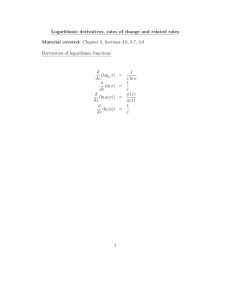
![[ln y] dy dx 2](http://s2.studylib.net/store/data/018302535_1-b746293f1349e81be2a778c9937d3ef7-300x300.png)
